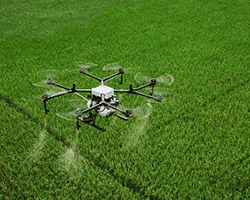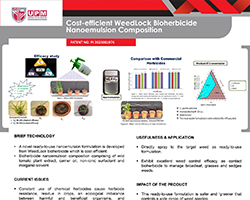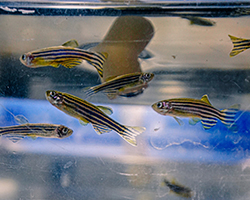According to the United Nations’ Committee on World Food Security, food security is well defined as the condition where all people have physical, social and economic access to an adequate, safe and nourishing food that meets their daily nutritional needs and food preferences for an active and healthy lifestyle. Population upsurge in many countries, particularly in the developing countries such as Malaysia, is posing a dire threat to the food security. With the ever increasing population growth, the demand for food is estimated to increase by 70 to 100% by 2050. Therefore, establishing food security is becoming essential in order to sustain the economic growth of Malaysia as well as to cater the needs of millions of hungry people.
Although Malaysia is self-sufficient in poultry meat, pork, fisheries and eggs, we are still depending on the imports of numerous food commodities such as rice, fruits, dairy milk and beef. In 2015, the food import bill was almost RM45.4 billion while the exports only RM 27 billion leaving a deficit of over RM18 billion. If this situation continues, Malaysia will be unable to render a continuous food supply to its people and most likely to face food crisis in near future. Recent studies have shown that low income rural communities are more prone to food insecurity due to bigger family size, more school going children, and mothers who are not working.
In order to ensure food security, Malaysia through its government and private institutions is working hand in hand to improve on the production of the staple foods by leveraging on agro-biotechnology, investing in rural area, and minimising marginalization of small farmers and other stake holders. The Ministry of Agriculture and Agro-based Industry (MOA) has been organising various seminars, workshops and memoranda of understanding (MoUs) between the ministries, private firms, agencies and stakeholders to ensure continuous food supply.
Universiti Putra Malaysia (UPM), a top notch agricultural institution is significantly contributing to the nation’s food security agenda by supporting the government’s food security initiatives. One of the most important strategies by UPM to improve efficiency and productivity of food includes bridging the technological gap that arises among the university laboratories, farms and industrial sectors. Various studies have been constantly carried out by the UPM scientists’ to address the current issues in the agriculture sector such as production, processing, food safety, sustainable resource management, biotechnology and post-harvest technology. In addition to that, UPM is also offering professional services in terms of training, extension and outreach programmes to the farmers. More recently, UPM is embarking on urban agriculture because rural-urban migration has caused a tremendous decline in the rural agricultural activities. Therefore, UPM’s mission is to create awareness among the urban community to produce home-grown food. Urban agriculture activities will relatively help to eradicate urban poverty and food insecurity.
In conclusion, Malaysia needs to emphasize more on the ‘food self-reliance and strategic adjustments’ to address the food security issues. Food security is everyone’s obligation whether household, farmer, private or government organizations. “Alone we can do so little, together we can do so much”.
Date of Input: 02/05/2017 | Updated: 06/06/2017 | mohdhusni
MEDIA SHARING




























